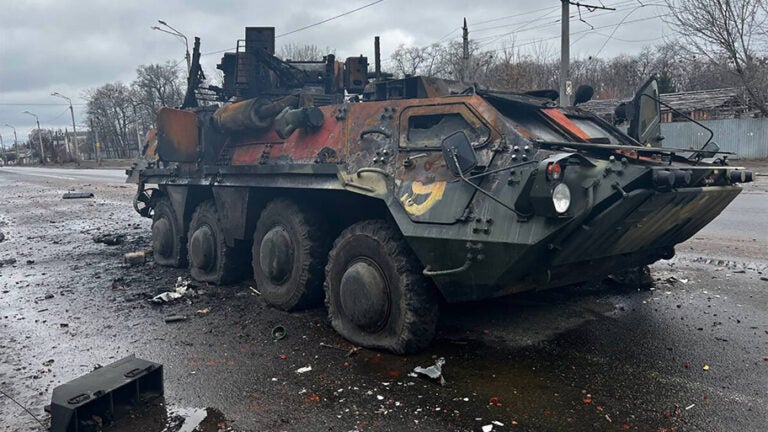
Why has Russia invaded Ukraine? USC Dornsife experts break down the conflict
As Russian military forces continue to carry out a full-scale invasion of Ukraine, many have wondered:
- Why is Russia waging war on Ukraine?
- How are Ukrainian and Russian citizens affected?
- What are the global ramifications?
- What are other countries doing to help?
The USC Global Policy Institute — a student-run foreign affairs think tank and education institute — teamed with scholars at the USC Dornsife College of Letters, Arts and Sciences to present “The Russian Invasion of Ukraine: A Discussion of the Ongoing Conflict, What It Means and What Happens Next” on March 3.
What they said:
“The idea of an independent Ukraine is that much more irksome and intolerable to them (some Russians). They view it as a violation of what they understand as a natural order of statehood.”
— Tom Seifrid, professor of Slavic languages and literatures, an expert on Poland
- Seifrid explained that Vladimir Putin and other Russians have come to view Ukraine as culturally, historically and geographically tied to the former USSR.
“In the Ukrainian context, the new identity born after Maidan is based on the idea that you can be culturally Eastern European, yet you want to belong civilizationally to Western Europe.”
— Andrzej Brylak, postdoctoral fellow in Slavic languages and literature
- Brylak covered the Maidan revolution in Ukraine in 2014 as a journalist.
- He has worked from the U.S. to place refugee families in Poland.
“This is a very emotional, really painful period of days for many of you. I want to just acknowledge how difficult this time has been. It affects the USC community — there are Russian [and] Ukrainians here affected.”
— Steve Swerdlow, professor of associate professor of the practice of political science and international relations, a human rights lawyer
- Swerdlow described how the war has become a human rights catastrophe.
- He said the West can help support displaced families by collecting survivors’ testimonies, voicing support on sanctions against Russia and ramping up pressure on the Biden administration to accept refugees.
“Ukraine has continued to be resilient, and the Kremlin has so far learned no lesson. What our main fear is that it will take many, many more victims and many, many more days to actually stop this invasion.”
— Katarzyna Pisarska, associate professor at Warsaw School of Economics and founder and director of the European Academy of Diplomacy in Poland
- Pisarska attended the event remotely from Warsaw, Poland.
- She detailed how Poland has effectively managed the influx of Ukrainian refugees and is working to place children in schools and adults in jobs.
“Putin has now made a clear decision to go for it at all costs, which is why this fear a Grozny-like outcome is well-founded.”
— Robert English, associate professor of international relations, Slavic languages and literature and environmental studies, an expert on the former Soviet Union
- English referred to the damage Putin inflicted on Grozny, Chechnya, when the republic sought independence in the 1990s.
Hopeful words
Pisarska: “[What my Ukrainian friends have said] is, ‘This war is already won by us … There is no stopping of the Ukrainian nation — there is not going to be a return of Ukraine to Russia. Ukraine is lost for Russia forever. They’re no longer our brothers.’ And I think we need to understand that this determination will absolutely change the course of this war.”
About the event
Paul Lerner, professor of history and an expert on Central Europe, served as moderator.
USC Dornsife event partners included:
- Department of Political Science and International Relations
- Max Kade Institute for Austrian-German-Swiss Studies
- Department of Slavic Languages and Literatures
See the USC Global Policy Institute for more on the story >>